
Knowledge Exchange Blog

Preserving Affordable Housing Through Municipal Rental Licensing Programs
Rental housing licensing is a proactive, effective and efficient way that local governments can ensure buildings are maintained in a state of good repair. Such programs shift the onus off renters from having to make a complaint in order for their homes to be well maintained. Under this model, landlords must obtain rental housing licenses that are subject to building evaluations and regular health and safety inspections to demonstrate compliance with municipal property standards.
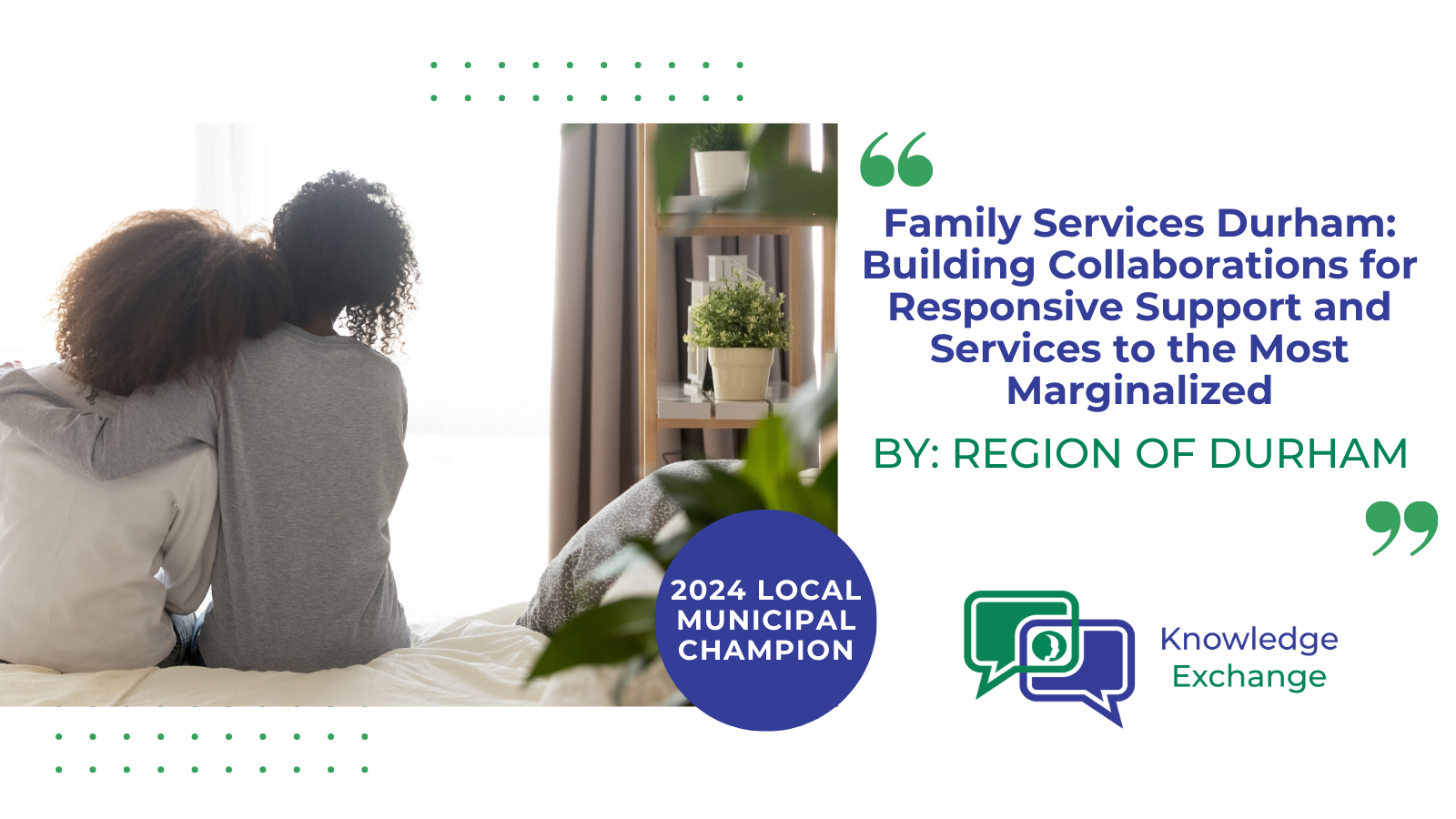
Family Services Durham: Building Collaborations for Responsive Support and Services to the Most Marginalized
OMSSA is featuring several 2024 Local Municipal Champion award recipients and their work in the Knowledge Exchange Blog. Please read this entry from the Region of Durham.
Family Services Durham (FSD) has provided affordable and no-cost quality community-based mental health services in Durham Region for almost 50 years. In 2023, over 6,600 residents were supported within FSD’s range of programs, which offer holistic, client-centered, trauma- and poverty-informed services designed to stabilize and strengthen individuals, couples, and families and respond to emerging needs.
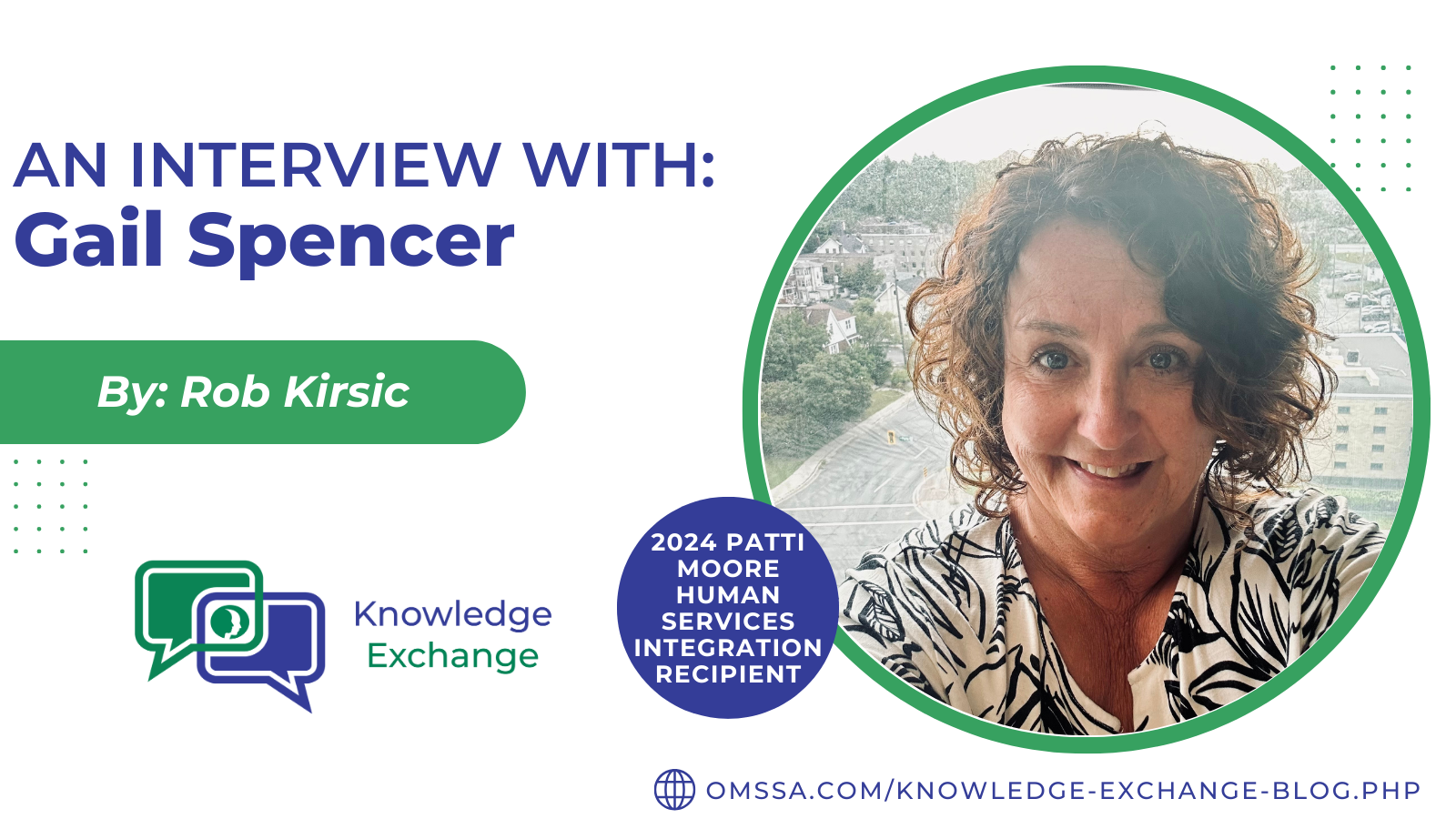
An Interview with Gail Spencer
Gail Spencer, Manager of Housing Stability and Homelessness for the City of Greater Sudbury, spearheaded community and provincial initiatives, developing a roadmap for a responsive, integrated human service system for the unhoused population and programs aiming to end homelessness.
She is also the recipient of the 2024 OMSSA Patti Moore Human Services Integration Award. OMSSA sat down with Gail for an interview to discuss her work and career and thoughts on human services in Ontario.
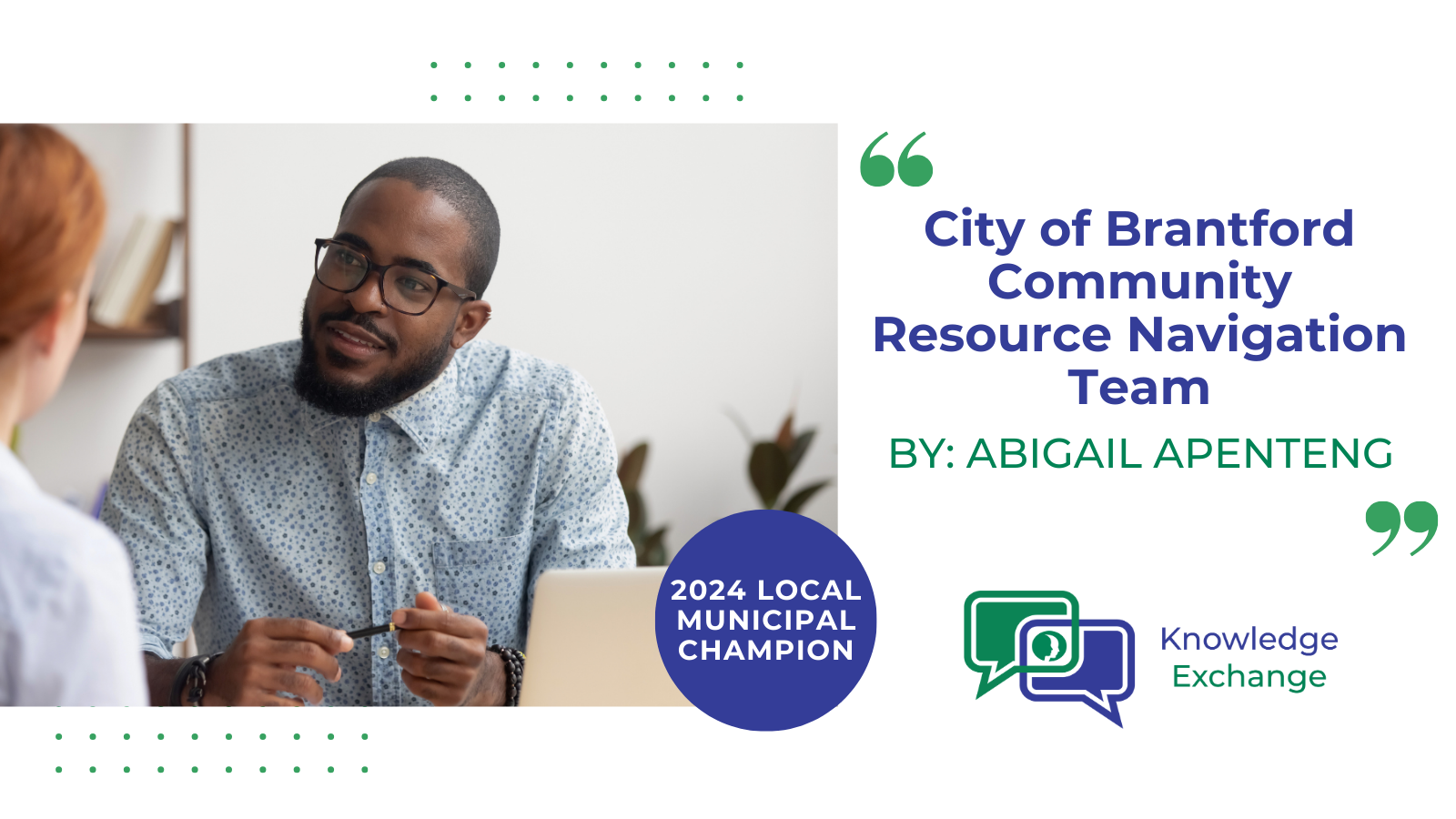
City of Brantford Community Resource Navigation Team
OMSSA is featuring several 2024 Local Municipal Champion award recipients and their work in the Knowledge Exchange Blog. Please read this entry from the City of Brantford.
Brantford’s Community Resource Navigation (CRN) pilot is a service delivery approach focused on improving OW recipients’ overall well-being, decreasing time on assistance and/or avoiding the need to enter the social assistance system altogether through an integrated and person centered service delivery model.
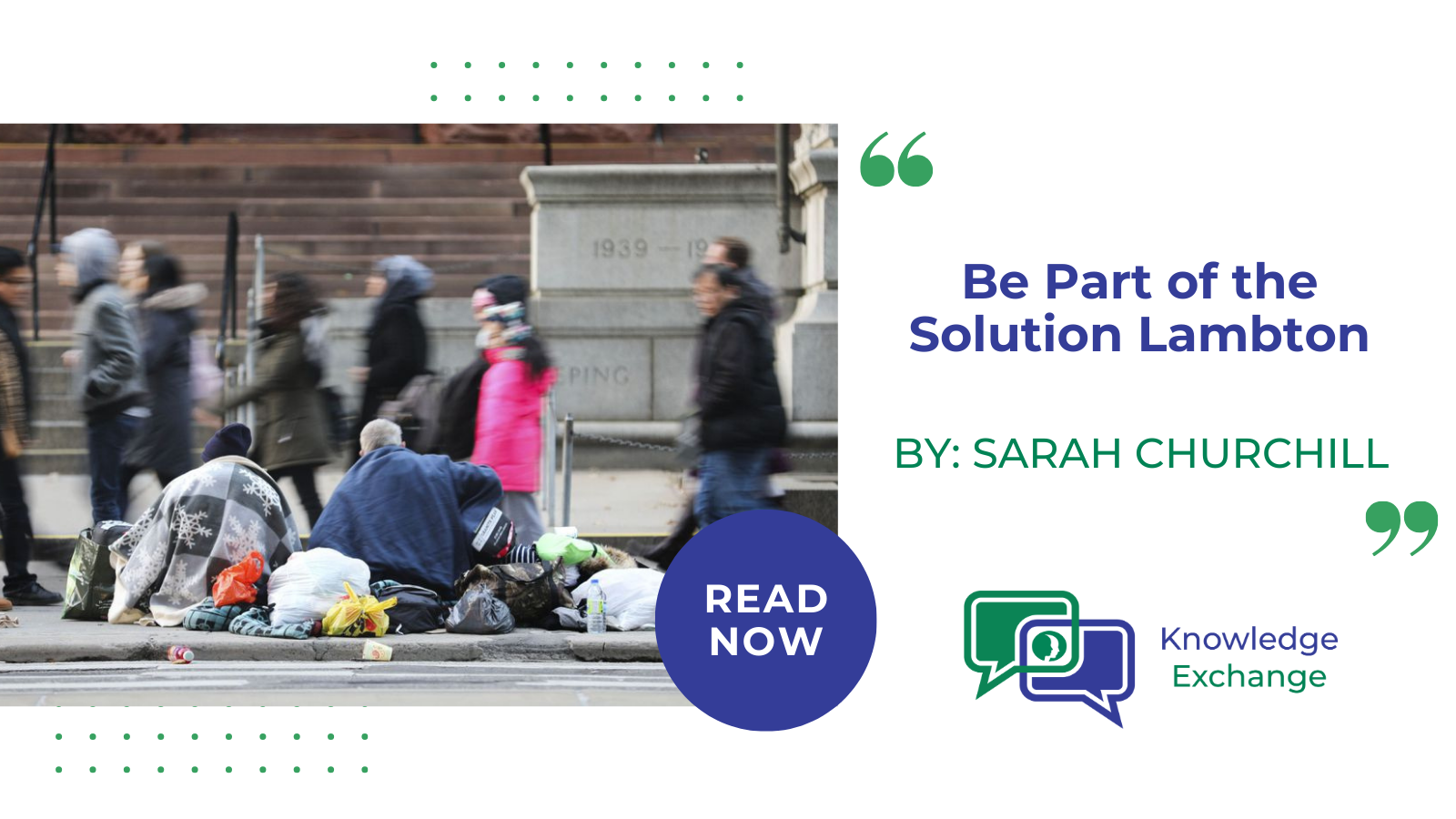
Be Part of the Solution Lambton
Be Part of the Solution stemmed from priorities identified at Lambton County’s 2023 Stronger Together Summit. This event brought together stakeholders from local non-profits, government, the healthcare sector, and individuals with lived experience to discuss issues of housing, homelessness, and addiction. The top priority emerging from this summit was a public education campaign around homelessness, particularly with a focus on long-term supportive and affordable housing, and community will to say “yes, in my backyard” to these proven interventions. Learn more about Lambton County’s public education campaign.
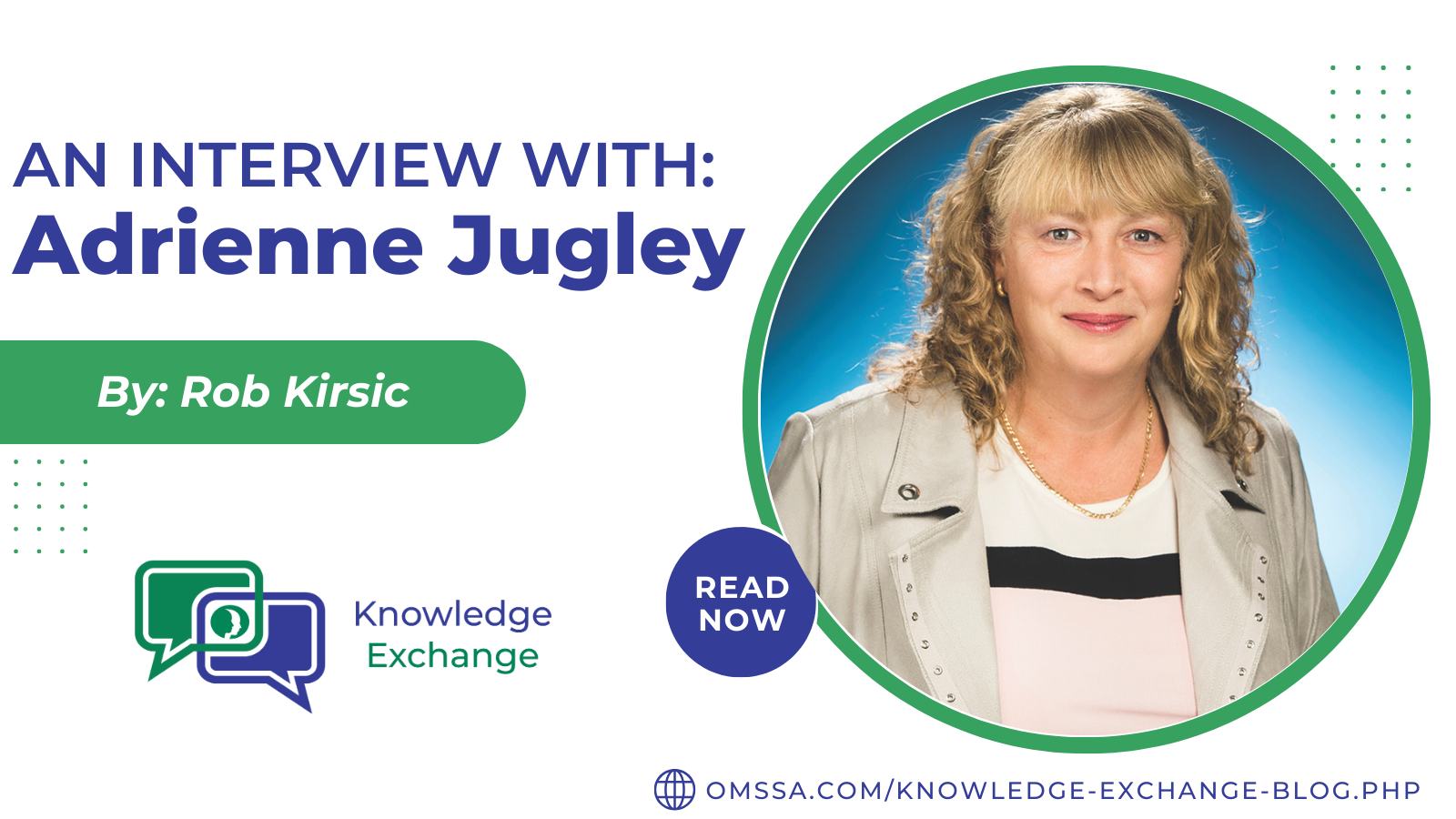
An Interview with Adrienne Jugley
Adrienne recently served as the Commissioner of Community Services where she was committed to serving the most vulnerable people in the Niagara community from infant to senior. In this role, Adrienne envisioned Niagara Region as a strong community where individuals are supported to maximize their potential, achieve their goals, and enhance their quality of life and social well-being.
She is also one of the recipients of the 2024 OMSSA Champion of Human Services Award. OMSSA sat down with Adrienne Jugley for an interview to discuss her work and career and thoughts on human services in Ontario.
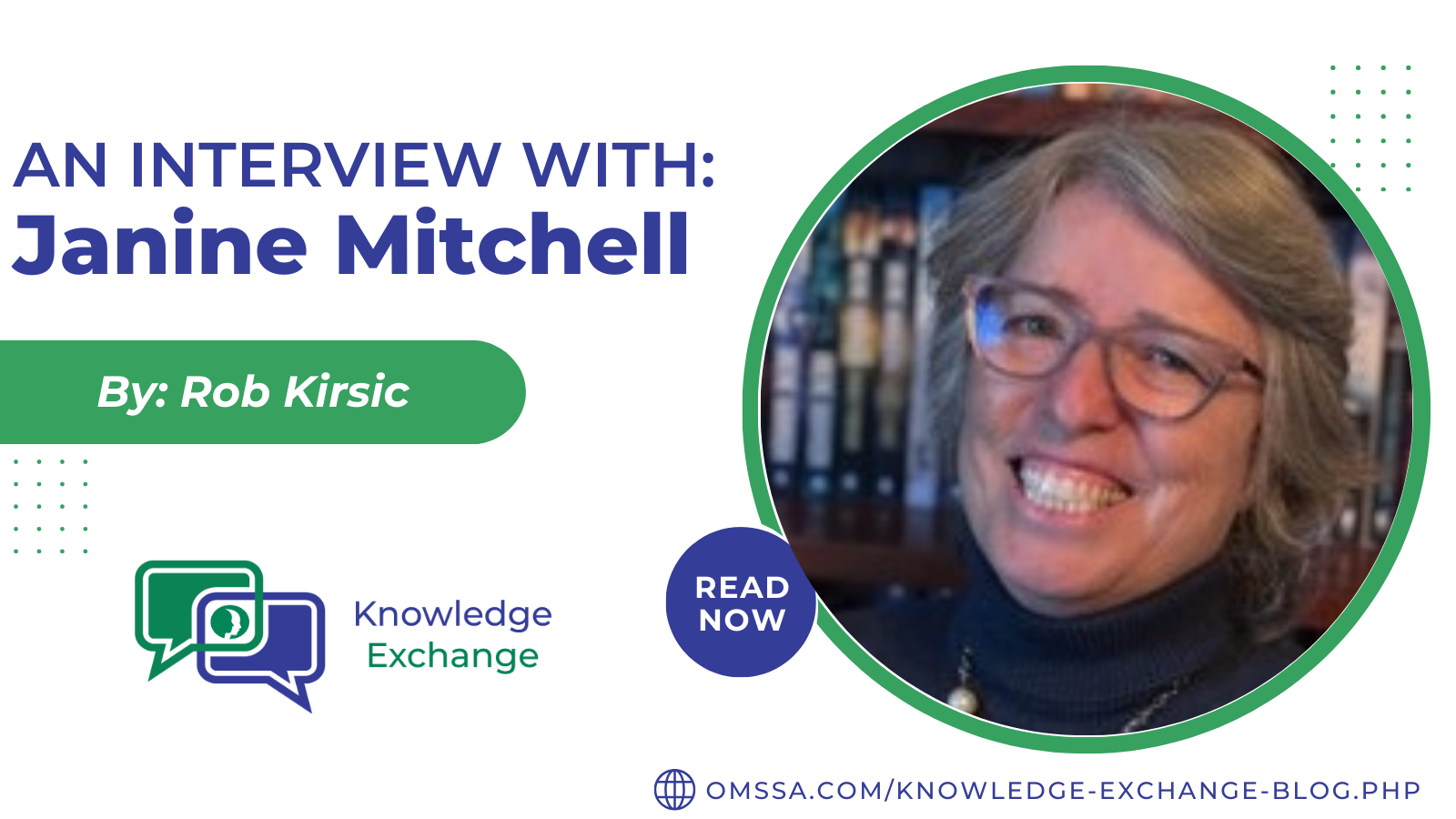
An Interview with Janine Mitchell
Janine Mitchell has worked in the human services sector for her entire 40 year career, starting off working in licensed child care and eventually making her way to a municipality managing Children’s Services, the delivery of Ontario Works Program and Social Services Emergency Management.
She is also one of the recipients of the 2024 OMSSA Champion of Human Services Award. OMSSA sat down with Janine Mitchell for an interview to discuss her work and career and thoughts on human services in Ontario.

Providing Access to Rural Data for Decision Making: ROI’s Community Wellbeing Dashboard
Rural communities often struggle to find information to support decision making. Not only can rural data be difficult to find, it’s also difficult to work with. Most rural municipalities don’t have a data analyst on staff to gather, analyze, and interpret data. But all municipalities have to make the same decisions, whether or not they have capacity for data analysis. Therefore, it’s critical to make rural data more easily accessible and understandable for decision makers. The Rural Ontario Institute (ROI) has developed a Community Wellbeing Dashboard that improves access to information for decision making.

Towards Reconciliation in Research: Ethical Approaches to Research and Engagement with Indigenous Peoples
The history of unethical research with Indigenous Peoples cannot be undone, but we can recognize this history and shift towards a future where research is decolonized and collaborative. By centering Indigenous data governance and adopting ethical methodologies, we can foster a research environment that respects the sovereignty, knowledge, and rights of Indigenous communities so that research benefits rather than harms Indigenous communities. This shift is not only necessary for healing historical wounds but also an essential part of reconciliation and healing for Indigenous communities.
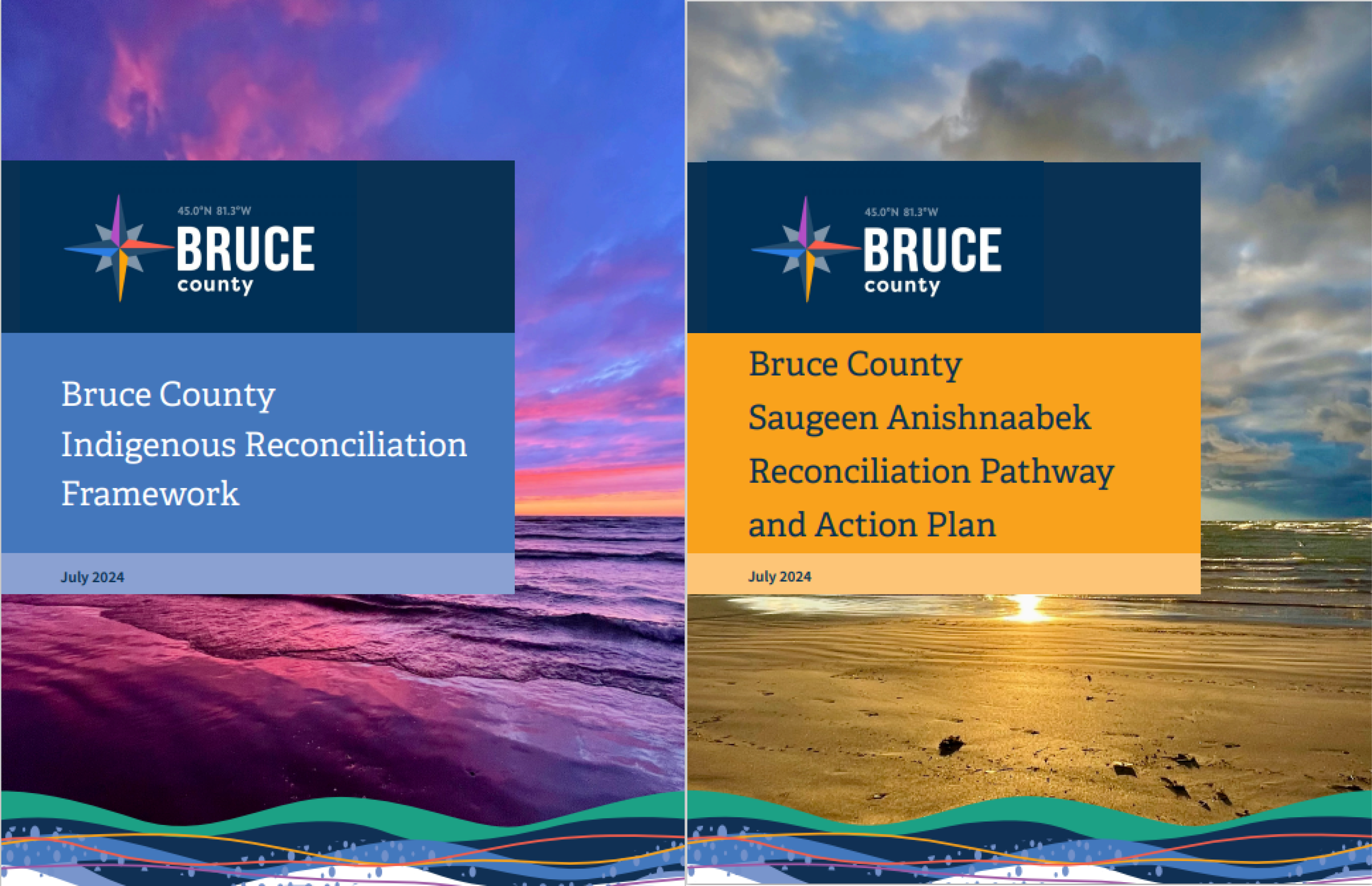
Walking Together: Bruce County’s Journey Toward Indigenous Reconciliation
Bruce County, located on the traditional territories of the Chippewas of Nawash Unceded First Nation and Saugeen First Nation, collectively known as the Saugeen Ojibway Nation (SON), took the Truth and Reconciliation Commission’s 94 Calls to Action to heart. The County’s relationship with these First Nations is amplified by their shared history and geography. Recognizing this, Bruce County embarked on a significant and comprehensive journey toward Reconciliation, marked by the development of the Indigenous Reconciliation Planning Initiative and ultimately the Indigenous Reconciliation Framework, and the Saugeen Anishnaabek Reconciliation Pathway and Action Plan. This blog delves into that journey – its beginnings, milestones, and the steps Bruce County is taking to foster meaningful Reconciliation.
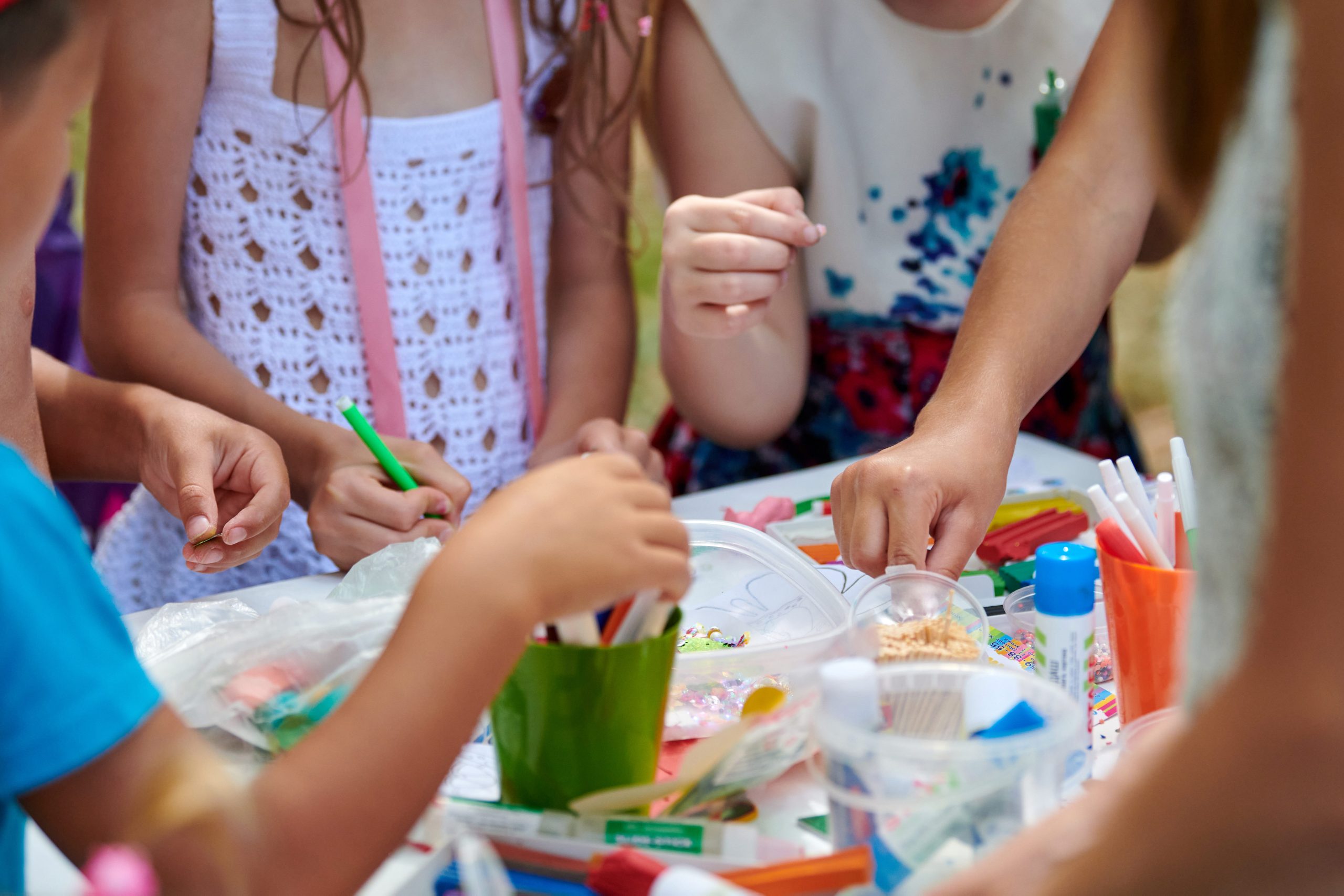
Achieving Equitable Child Care for Urban Indigenous Families in Collaboration with CMSMs and DSSABs
The Ontario Federation of Indigenous Friendship Centres (OFIFC) represents 31 member Friendship Centres, who have identified that Indigenous-led early learning and child care (IELCC) is a top priority, central to fostering strong, vibrant and prosperous Indigenous children, families and communities. This work is critical to transforming and advancing Ontario’s child care system towards an Indigenous-led model that can support high-quality urban Indigenous early learning and child care programs and services. The OFIFC continues to assert that supporting the right of urban Indigenous communities to self-determination is an action-oriented reconciliation commitment that Service System Managers can advance in collaboration with the OFIFC. Learn more about the work OFIFC is undertaking to move this work forward.

